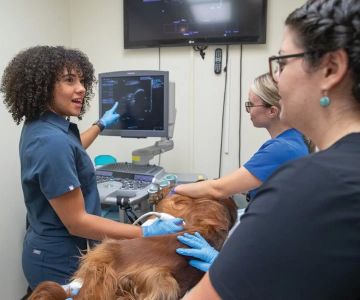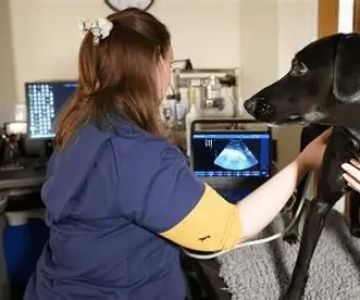- 1-choosing-the-right-major-for-veterinary-career
- 2-understanding-veterinary-school-prerequisites
- 3-real-life-examples-of-successful-veterinary-paths
- 4-additional-beneficial-majors-and-skills
- 5-how-to-navigate-your-vet-career-path
- 6-taking-the-next-step-towards-a-veterinary-career
Choosing the Right Major for a Veterinary Career
When asking yourself what should you major in to be a veterinarian, it’s essential to consider the foundation your major will provide for veterinary school and beyond. Most aspiring veterinarians choose majors closely related to biology or animal sciences because these fields build critical knowledge in anatomy, physiology, and animal behavior. Majors like veterinary science, animal science, or even biology provide comprehensive coursework that directly supports veterinary school prerequisites.
For example, a veterinary science degree often includes specialized courses such as animal nutrition, pathology, and microbiology, which align perfectly with what you will encounter in veterinary school. While some students may worry that only a pre-vet or veterinary science major will suffice, many successful veterinarians have come from broader science majors, provided they meet the required prerequisites.
This flexibility means you can choose a major that also fits your interests, as long as you complete key courses like chemistry, biology, physics, and math. The key is to balance your passion for animals with a strong scientific background.
Understanding Veterinary School Prerequisites
Knowing what veterinary schools expect is crucial for making the right academic choices. Most accredited veterinary programs require applicants to have completed certain prerequisite courses before applying. These typically include general chemistry, organic chemistry, biology, physics, biochemistry, and sometimes statistics or calculus.
Many students ask, "What should you major in to be a veterinarian if veterinary school prerequisites matter most?" The answer is that your major should strategically allow you to complete all these courses. For instance, an animal science major usually incorporates many of these prerequisites, while a biology major naturally covers most.
Additionally, veterinary schools look for hands-on experience. This means alongside your coursework, gaining exposure through internships, volunteer work at animal shelters, or shadowing practicing veterinarians is highly recommended. These experiences not only enrich your application but also confirm your commitment and passion.
Real-Life Examples of Successful Veterinary Paths
Consider Emma, a recent veterinary school graduate who initially majored in biology. While biology wasn’t a veterinary-specific major, Emma took extra courses in animal physiology and worked part-time at a local animal clinic. Her story illustrates that with proper planning and practical experience, the exact major is less important than your dedication and preparation.
Another example is Jake, who pursued an animal science major at a large university known for its agricultural programs. Jake’s curriculum included animal nutrition and breeding, and he completed internships with large animal vets on farms. This hands-on approach gave him a strong advantage during his vet school interviews and practical exams.
These examples highlight how diverse academic paths can converge toward becoming a veterinarian if you strategically meet prerequisites and build relevant experience.
Additional Beneficial Majors and Skills
Besides veterinary science and animal science, some students find majors like biochemistry, zoology, or environmental science beneficial. These fields offer a deeper understanding of molecular biology, ecosystems, and animal habitats, which can enhance a veterinarian’s knowledge base.
Moreover, soft skills such as communication, problem-solving, and empathy are vital in veterinary careers. Courses or extracurricular activities that develop these traits can improve your ability to work with pet owners and handle stressful situations effectively.
Developing research skills through undergraduate projects or working in labs can also be an asset, especially for those interested in veterinary research or academic careers.
Taking the Next Step Towards a Veterinary Career
If you’ve been wondering what should you major in to be a veterinarian, now you have a clearer picture: focus on a science-related major that fulfills veterinary school prerequisites, gain hands-on experience, and cultivate strong interpersonal skills.
To make your journey smoother, consider investing in comprehensive preparatory resources such as veterinary school admission guides, test prep courses for the GRE or the VMCAS application system, and volunteer opportunities that enhance your resume. These tools not only boost your confidence but also increase your chances of acceptance into top programs.
Embark on your veterinary career path with the right academic foundation and practical exposure. Explore quality educational products designed specifically for aspiring veterinarians to help you stand out in the competitive application process and excel in your future profession.









